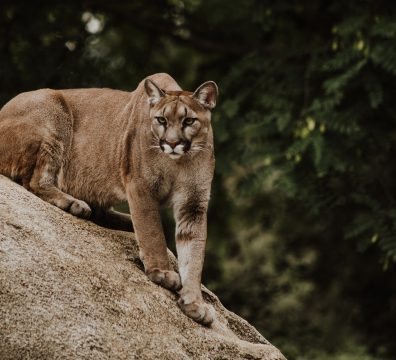Vancouver Island is home to numerous wild animals. Whales and various species of birds migrate along the BC Coast. Schools of salmon spawn in the sea. Explorers may also discover deer, elk, cougars, black bears, wolves, and many other mammals.
One of the major benefits of venturing into nature is witnessing the animals and birds in their natural habitat. To be sure, experiencing animals in the Canadian outdoors can be both moving and educational. Who knew deer could leap that high?
On the other hand, experiences in nature come with risks and dangers. That’s why it’s worthwhile to know how to prepare for safe and sustainable wildlife encounters on Vancouver Island.
Eschew solo travel. There is safety in numbers when it comes to hiking in the outback. The more hikers in a group, the more noise likely to be made. Noise is an excellent way to keep wildlife at a safe distance.
Plan to keep children and pets by your side. Should you allow your dog or child to run ahead or off-trail, it could result in a scary surprise. You certainly do not want wildlife to come between you and your loved ones.
Choose not to wear headphones while exploring. Part of sightseeing up an isolated mountain is being completely in the moment and aware of your surroundings. You’ll miss the sound of nearby animals if you’re wearing headphones and could startle a protective mama deer and her offspring.
Use your sense of smell. Another important sense to use is your nose. Unusual smells in the wild can signify a bear nearby or further up the trail. Beware and stay safe.
Plan to explore during daylight hours. Animals such as bears tend to be more active at daybreak or in the evening. While it may be cool to view one from afar, coming upon one while they’re foraging for food may result in a most unpleasant experience.
Carry bear spray. Make sure you store it for easy access, not buried in the bottom of your backpack.
Always keep garbage secured. Bears are attracted to smelly garbage and are typically searching for food. Invest in a bear-resistant container and never leave food out for prolonged periods at your campsite.
Respect national park signage. For example, if you’re heading out for a chill island beach walk with your fur-buddy, keep them on-leash during the Brant Geese migration. A rambunctious barking dog can be extremely stressful for the birds.
Don’t leave pet food outside your roof top tent. Furthermore, don’t leave your pet outside the tent overnight. Uneaten pet food may attract cougars and raccoons. Dogs left outside can become targets of prey. Keep food safely stored in an airtight container and your beloved pet snuggled close at night.
Keep a respectful distance from whales. When heading out on the ocean, only approach whales from the side, not head-on or behind them. Keep at least 100 metres away and keep noise levels down. Drive slowly in their vicinity and do not accelerate a boat until another 200 metres away. Never, ever chase after a group of whales and keep watch for other whale watching vessels.
Keep your eyes peeled for signs of bears or other critters. Signs include tracks, fresh claw marks on trees, or scat. When in doubt, take another route.
Avoid terrifying conflicts with animals in their natural habitat. Keep a safe distance and respect the fact you are a visitor in their environment.
Roof Top Tents wants you to take appropriate precautions when you venture out into the wild. Luckily, a hard-shell roof top tent offers a little added security against curious wildlife encounters.
Make wonderful memories in the amazing outdoors with your friends and family, instead of mistakes you’d rather forget.


